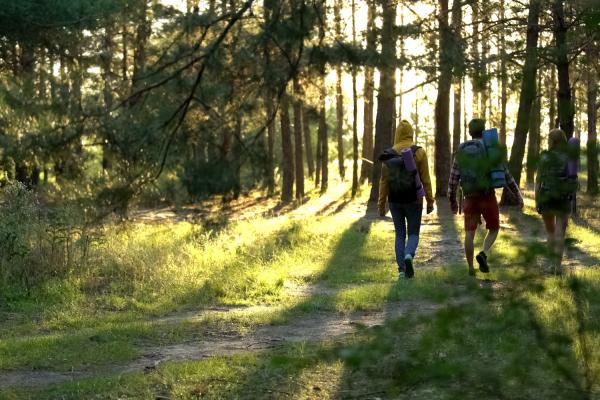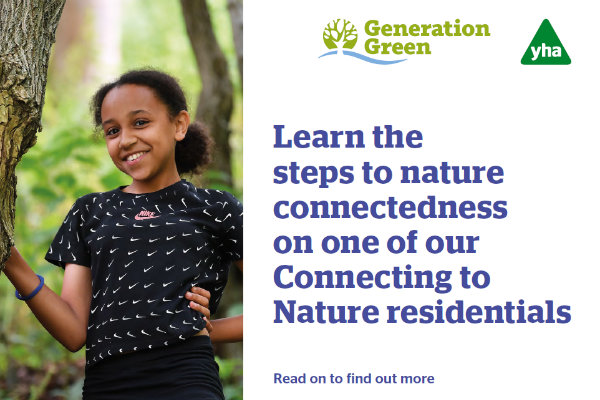Our Connecting to Nature Residential combines nature-based activities with ways to develop mindfulness skills.
We're offering fully funded one and two-night residentials at 10 different YHA hostels across England. These are designed to connect or reconnect young people to the natural environment, helping them learn the five steps to nature connectedness.
The focus will be less around what participants do and how they do it, but more around why they do it and how it makes them feel. This will give participants the opportunity to discover the effects of spending time in the outdoors.
Evenings will be spent around the campfire – toasting marshmallows, telling stories and singing songs – because nothing connects people to nature more that the flickering flame of a campfire under a starlit sky.
Each one or two-night stay is for a class of up to 30 young people and their leaders (assuming 1:10 leader to pupil ratio). This includes accommodation and full board catering with breakfast, lunch and evening meals provided, plus a range of activities designed to connect young people with nature in a protected landscape.
We know that transport costs can be a barrier to participation, so we are also offering bursaries of up to £25 per student to put towards their travel.
Essentials
- Type: one or two-night residential
- Dates: September 2024 to February 2025 (potential limited availability in March 2025)
- Locations: various – see below
- Cost: free – fully funded residential (travel bursaries also available)
- Suitable for: groups aged 7 to 14 years – open to schools in England that have 30% or more young people in receipt of pupil premium
Locations
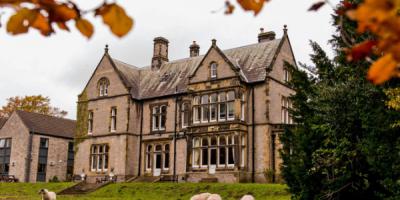



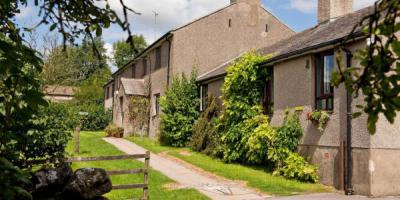


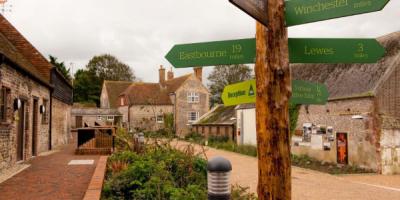


How to apply
Applications have closed for our Connecting to Nature Residential opportunity.
If you have any questions, you can send them directly to our team or sign up to our mailing list for regular updates.
Need to know
How it works
Activities vary by location and may include:
- building bug hotels
- campfire
- Countryside Code workshop
- environmental art
- fire lighting
- guided walks
- habitat studies
- log pile construction
- mindfulness activities
- natural craft activities
- nature identification
- shelter building
- team challenges
Learning outcomes
- To gain a greater understanding of the value and importance of connecting to nature.
- To spend time in natural green spaces.
- To value and appreciate time in the outdoors.
- To participate in healthy physical activity.
- To develop an increased motivation and appetite for learning.
Participants will learn the five steps to nature connectiveness and a range of mindfulness techniques
What to bring
Participants will need to bring a packed lunch with them or eat before arrival. If your group is staying for one night, an evening meal will be provided on the day of arrival as well as breakfast and packed lunch on the day of departure. If you are staying for two nights, we’ll also provide breakfast, packed lunch and an evening meal on your second day.
Details of any specific project-based kit will be sent in advance if required. As a guide, all participants should bring the following:
- small rucksack to take on activities
- warm hat and gloves
- several old shirts or t-shirts
- several pairs of old trousers (possibly old tracksuit, not jeans)
- several jumpers or warm tops (2 thin ones are better than a thick one)
- warm and waterproof coat with hood and waterproof trousers
- old trainers for use on wet or muddy activities
- walking boots and ideally a pair of wellies
- shoes/trainers for use in the hostel
- several pairs of socks, including a thick pair if you have them
- several changes of underwear
- pyjamas
- comfortable set of dry clothes for meals and wearing in the hostel
- wash kit and towel
- suncream and insect repellent
- reusable water bottle
- torch and spare battery (important for evening outdoor activities)
Our activities are designed to connect participants to the outdoors and will therefore take place in the natural environment outside. There is a strong possibility that participants will get wet and muddy during their stay, so new and expensive items of clothing are best left at home.
All medication should be handed into the group leader with a note stating what it is, what it is for and the method and frequency of use. Medication should not be left in the bunkrooms or around the hostel.
All valuables should be kept with participants or handed in at reception. We encourage participants not to bring valuables with them and to keep pocket money to a reasonable level (in small denominations if possible).
Access guidance
For guidance on each hostel including details of any accessible bedrooms, please refer to the relevant access statement.
- YHA Castleton Losehill Hall
- YHA Grinton Lodge
- YHA Ilam Hall
- YHA Langdale
- YHA Malham
- YHA Ravenstor
- YHA Sherwood Forest
- YHA South Downs
- YHA Truleigh Hill
- YHA Wye Valley
Our activities are designed to be as accessible as possible to support the needs of all participants. Due to the unique locations of our hostels and their grounds, we may need to tailor some activities (such as a guided walk) to support participant needs. Please ensure that the needs of the group are shared with our team at the time of booking to help us facilitate this.
Sample timetable
Learn the steps to nature connectedness on one of our Connecting to Nature residentials. Here’s what could be in store for you:
One-night residential
Day one
13:00 – 13:30: Arrival and welcome (bring your own packed lunch)
13:30 – 14:00: Introduction to Generation Green
14:00 – 17:00: On-site connecting to nature activities such as minibeast hunt or life in a protected landscape
17:00 – 18:00: Room allocation and free time
18:00 – 19:30: Evening meal
19:00 – 20:30: Campfire senses
Day two
07:30 – 08:30: Breakfast
09:00 – 11:30: Guided nature walk
11:30 – 12:00: Reflection and feedback
12:00 – 12:30: Lunch
12:30 – 13:30: Departure
Two-night residential
Day one
13:00 – 13:30: Arrival and welcome (bring your own packed lunch)
13:30 – 14:00: Introduction to Generation Green
14:00 – 17:00: On-site connecting to nature activities such as minibeast hunt or life in a protected landscape
17:00 – 17:30: Room allocation and free time
17:30 – 19:00: Evening meal
19:00 – 20:30: Campfire senses
Day two
07:30 – 08:30: Breakfast
09:00 – 12:00: Guided nature walk
12:00 – 13:00: Lunch
13:30 – 16:30: Bushcraft – fire lighting and shelter building
16:30 – 17:30: Free time
17:30 – 19:00: Evening meal
19:00 – 20:30: Night hike
Day three
07:30 – 08:30: Breakfast
09:00 – 11:30: Environmental art or on-site connecting to nature activities
11:30 – 12:00: Reflection and feedback
12:00 – 12:30: Lunch
12:30 – 13:30: Departure
Generation Green
YHA (England & Wales) is delivering the Connecting to Nature Residential as part of Generation Green 2. This Access Unlimited project will be supported by funding from Defra as part of their ongoing support of access to nature.
The new project will build on the success of Generation Green, a 16-month initiative that provided more than 115,000 opportunities to connect young people to nature – many for the first time – and to cultivate a sense of care for the natural environment.
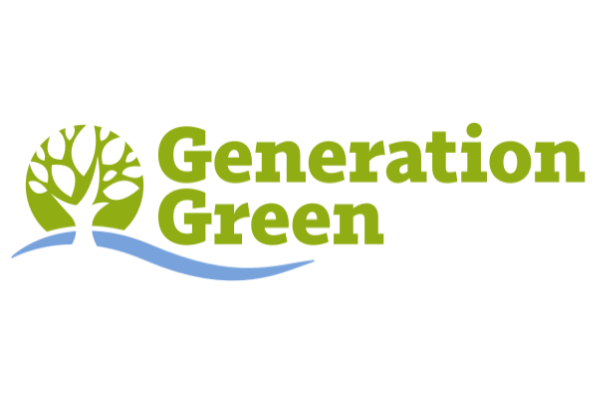
Sign up for updates
Get regular updates on Generation Green including new opportunities, progress on the project and stories about the young people who are taking part. See our Privacy Notice.
